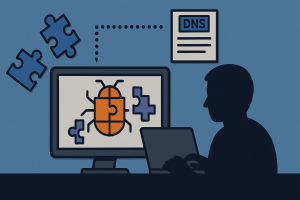 Cyberattacks on U.S. federal courts are no longer just IT problems. They now pose a national security threat.
Cyberattacks on U.S. federal courts are no longer just IT problems. They now pose a national security threat.
That is Senator Ron Wyden’s warning in a blunt letter to Chief Justice John Roberts this week, urging the Supreme Court to address repeated breaches of the judiciary’s document filing and email systems. Wyden called the hacks “unacceptable” and said weak practices have left the courts “an inviting target” for foreign adversaries. [Read more…]
 Why Shadow AI Slips Past Security
Why Shadow AI Slips Past Security A new cybersecurity threat is emerging as attackers use DNS records—the very system that directs internet traffic—to hide malware. Instead of relying on email attachments or suspicious downloads,
A new cybersecurity threat is emerging as attackers use DNS records—the very system that directs internet traffic—to hide malware. Instead of relying on email attachments or suspicious downloads,